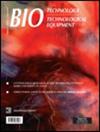A study of anti-SARS-CoV-2 antibodies among healthcare personnel and the general population
IF 1.4
4区 生物学
Q4 BIOTECHNOLOGY & APPLIED MICROBIOLOGY
引用次数: 0
Abstract
Bulgaria, like many other countries, has experienced the far-reaching consequences of the Coronavirus disease 2019 (COVID-19) pandemic. Seroprevalence studies serve as a crucial method for assessing the exposure and immunity levels within a population. In this serosurvey, which is the first of this kind conducted in Bulgaria, we enrolled 104 healthcare workers (HCWs) from one front-line Bulgarian hospital and 237 individuals from the general population. Serum samples were collected in December 2021 from the general population and in February 2023 from HCWs and the general population. The presence of four anti-SARS-CoV-2 antibodies was evaluated: anti-Spike 1-IgG, anti-Nucleoprotein-IgG, anti-Spike1-IgA and anti-Recombinant binding domain neutralizing antibodies. Our results showed high percentages of seropositivity in both the HCWs and the general population (99% and 78%, respectively) in February 2023. HCWs had significantly higher mean IgA and mean anti-S1-IgG antibody levels compared to the general population. The seropositivity in the general population in December 2021 was 79%. The mean levels of IgA and anti-NCP-IgG were significantly higher, whereas the mean anti-S1-IgG levels were significantly lower in February 2023 compared to December 2021. We found a strong correlation between neutralizing antibodies and anti-S1-IgA and anti-S1-IgG antibodies for all tested groups. It is necessary to perform large-scale serosurveys to provide analysis of the seroprevalence in a larger population and its dynamics over time and to facilitate evidence-based strategies that will safeguard the health and well-being of the Bulgarian population and contribute to the global efforts in combating the COVID-19 pandemic.医务人员与普通人群抗sars - cov -2抗体的研究
与许多其他国家一样,保加利亚经历了2019年冠状病毒病(COVID-19)大流行的深远影响。血清阳性率研究是评估人群暴露和免疫水平的重要方法。在保加利亚首次进行的这项血清调查中,我们招募了来自保加利亚一家一线医院的104名卫生保健工作者(HCWs)和来自普通人群的237名个人。于2021年12月和2023年2月分别从普通人群和卫生保健工作者和普通人群中采集血清样本。检测四种抗sars - cov -2抗体的存在:抗spike 1-IgG、抗核蛋白- igg、抗spike1 - iga和抗重组结合域中和抗体。我们的结果显示,在2023年2月,HCWs和一般人群的血清阳性率都很高(分别为99%和78%)。与普通人群相比,HCWs患者的IgA和抗s1 - igg抗体水平显著升高。2021年12月,普通人群血清阳性率为79%。与2021年12月相比,2023年2月IgA和抗ncp - igg的平均水平显著升高,而抗s1 - igg的平均水平显著降低。我们发现在所有测试组中,中和抗体与抗s1 - iga和抗s1 - igg抗体之间存在很强的相关性。有必要开展大规模血清调查,分析更大人群中的血清患病率及其随时间变化的情况,并促进基于证据的战略,以保障保加利亚人口的健康和福祉,并为全球抗击COVID-19大流行的努力做出贡献。
本文章由计算机程序翻译,如有差异,请以英文原文为准。
求助全文
约1分钟内获得全文
求助全文
来源期刊

Biotechnology & Biotechnological Equipment
工程技术-生物工程与应用微生物
CiteScore
3.10
自引率
0.00%
发文量
90
审稿时长
1 months
期刊介绍:
Biotechnology & Biotechnological Equipment (B&BE) is an international open access journal publishing cutting-edge research. A modern world requires modern biotechnology and nanobiology. The journal is a forum that provides society with valuable information for a healthy and better life and promotes “the Science and Culture of Nature”.
The journal publishes original research and reviews with a multidisciplinary perspective; expanded case reports with a focus on molecular medical research and advanced practice in evidence-based medicine are also considered.
 求助内容:
求助内容: 应助结果提醒方式:
应助结果提醒方式:


